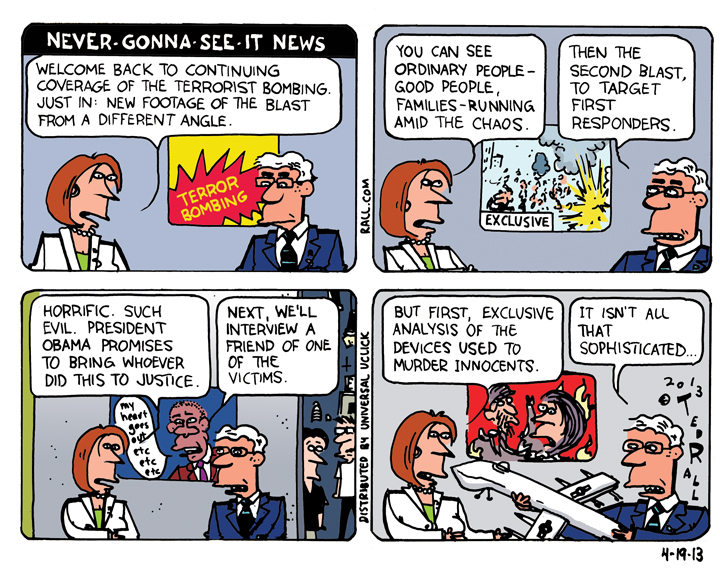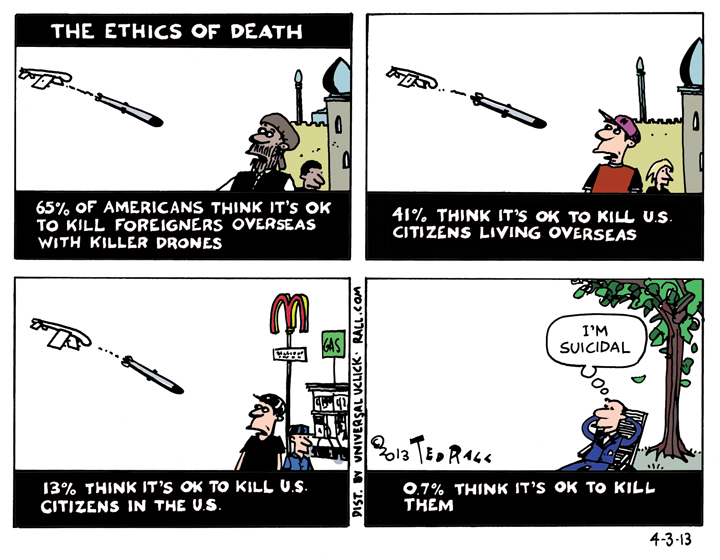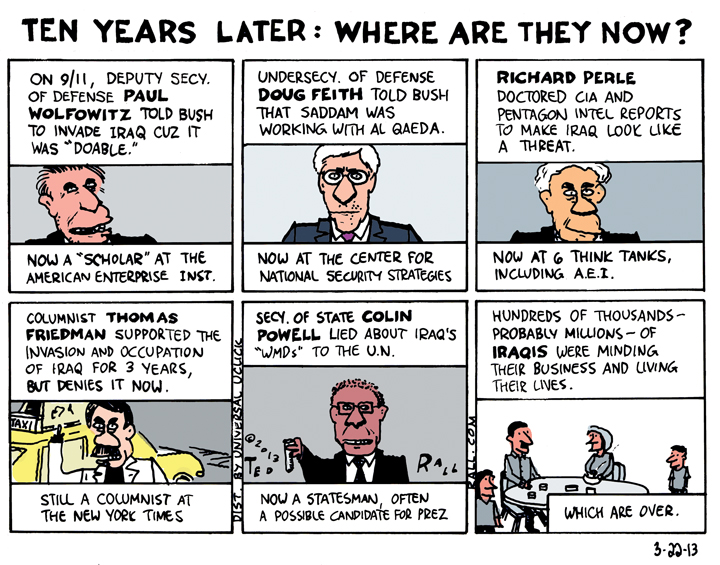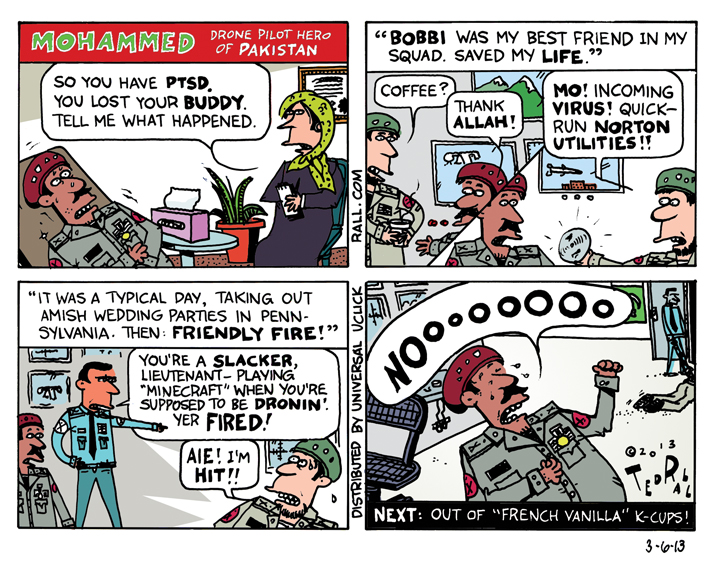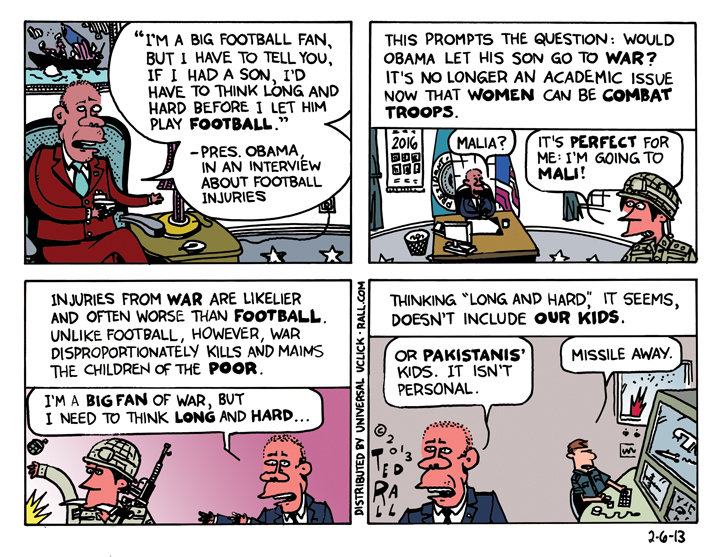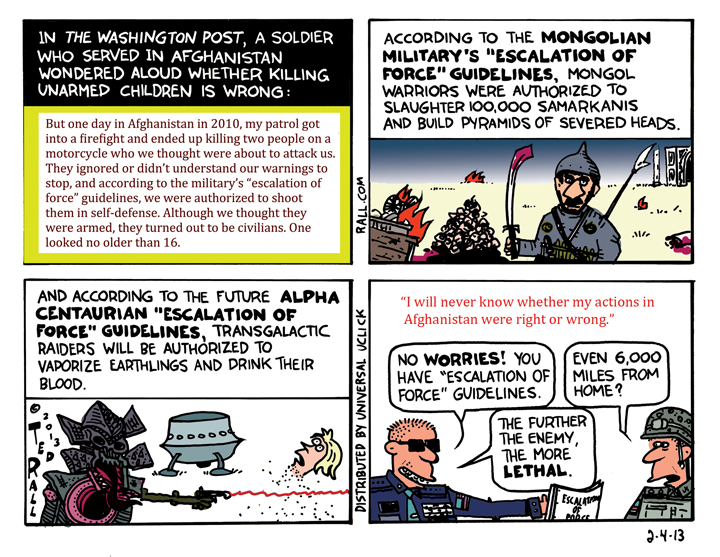IRS Targeting is a Scandal, CIA Targeting is Business as Usual
“We’re fighting for you!” That’s what the Democratic Party tells Democratic voters and what the Republican Party tells Republicans. But even their “battles” reveal how similar the two parties really are.
Case study: what gets investigated.
Less than a week after the news broke that the IRS engaged in ideological profiling in 2011 and 2012 — targeting Tea Party-related non-profits for checks into whether they were violating the terms of their tax-exempt status by spending donor money on political ads — top Democrats joined their GOP counterparts to demand a Congressional investigation. That’s lightening quick for government work — and yet not fast for some. Senator Marco Rubio (R-Florida, ’16 prez prospect) called for Acting IRS Commissioner Steven Miller to resign immediately. President Obama called the IRS’ actions “outrageous” and “contrary to our traditions.” The IRS has already apologized.
This all goes to show that the federal government can turn on a dime when it wants to do something. It’s a matter of priorities. Millions of Americans whose homes were stolen by banks in illegal foreclosures waited five years for $600 settlement checks that bounced; the Fed gave the executives of those banks $7.77 trillion in a matter of days, no questions asked.
So it goes with what gets investigated.
Thrown under the bus in a matter of days, the IRS is already getting ground to mincemeat. Meanwhile, a spectacular panorama of Bush-era abuses have yet to draw the attention of a single Congressional subcommittee.
The 2000 stolen presidential election fiasco? Still no investigation — even though retired Supreme Court Justice Sandra Day O’Connor, the swing vote in the 5-4 decision in Bush v. Gore, now agrees with constitutional lawyers who say the high court had no jurisdiction in the case and thus shouldn’t have heard it.
There still hasn’t been an independent investigation of 9/11.
No one has ever been questioned, much less held accountable, for the invasion of Afghanistan (ostensibly to catch Osama bin Laden, though he was already in Pakistan), the installation by the U.S. of the unpopular Hamid Karzai as a U.S. puppet, huge cash bribes paid to Karzai by Bush and now Obama, or the lies — an impeachable offense — about Saddam’s WMDs used to con the public into war against Iraq.
People outraged by Bush’s torture program, secret prisons, extraordinary rendition and indefinite detention of innocent people, including children, at post-9/11 gulags at places like Guantánamo, the “salt pit” at Bagram and the Indian Ocean island of Diego Garcia — even on prison ships on the high seas — hoped that President Obama would make good on his campaign promises to investigate these horrific crimes against international law, U.S. law and common decency. Instead, he obstructed justice — another impeachable offense — issuing a directive to his Justice Department and other law enforcement agencies to ignore them. “We need to look forward as opposed to looking backwards,” he told a TV interviewer on January 12, 2009, eight days before taking office.
“At the CIA, you’ve got extraordinarily talented people who are working very hard to keep Americans safe,” he said. “I don’t want them to suddenly feel like they’ve got spend their all their time looking over their shoulders.”
Yes. God forbid our heroic torturers should face any questions about jamming forced enemas up prisoners’ butts. Sorry: I meant our extraordinarily talented torturers.
And, now a flashback to April 14, 2008 — a mere nine months earlier. Candidate Obama told The Philadelphia Inquirer: “If I found out that there were high officials who knowingly, consciously broke existing laws, engaged in cover-ups of those crimes with knowledge forefront, then I think a basic principle of our Constitution is nobody above the law.”
Except the CIA. And the military. And Donald Rumsfeld and Condi Rice and Dick Cheney and John Yoo and, of course, George W. Bush, who explicitly authorized the torture and other high crimes, and is now an elder statesman with his own library and everything.
To recap:
Both parties think it’s bad bad bad for the IRS to target right-wing pseudo-nonprofits for audits.
Both parties think it’s perfectly fine A-OK doubleplusgood to target the buttholes of random Muslims you kidnapped from Afghanistan or Yemen or wherever.
What the IRS did was, of course, wrong. But I’d rather be audited than butt-raped. Butt-raping, especially butt-raping that occurs before illegal auditing, should be investigating before illegal auditing.
Both parties also agree that if there’s ever been something that doesn’t need investigating by anyone, ever, it’s drones. Yes, a whopping 1.8% of Congress recently held an “unofficial hearing” (toothless PR stunt) and politely requested that Obama provide “further clarification of the legal justifications behind drone strikes.”
But no one —not even Vermont’s token “socialist” Bernie Sanders — has called for an investigation into a drone war that ridiculously remains “classified,” a secret to everyone but the dead, the maimed and their survivors. Senator Rand Paul (R-Kentucky, ’16 prez prospect)’s filibuster merely demanded whether Obama planned to drone any U.S. citizens on U.S. soil. (Since he has already droned U.S. citizens on foreign soil, we know the answer to that.)
I’m not Suze Orman, but please let me help you save a few bucks. Whether you’re a Democrat or a Republican, the next time you get a campaign mailer asking you to support them because they’re “fighting hard for you,” chuck that sucker into the recycler. The truth is, the two major parties are on the same page on just about everything.
They’re not fighting for you.
They’re fighting for themselves.
(Ted Rall’s website is tedrall.com. His book “After We Kill You, We Will Welcome You Back As Honored Guests: Unembedded in Afghanistan” will be released in November by Farrar, Straus & Giroux.)
COPYRIGHT 2013 TED RALL

